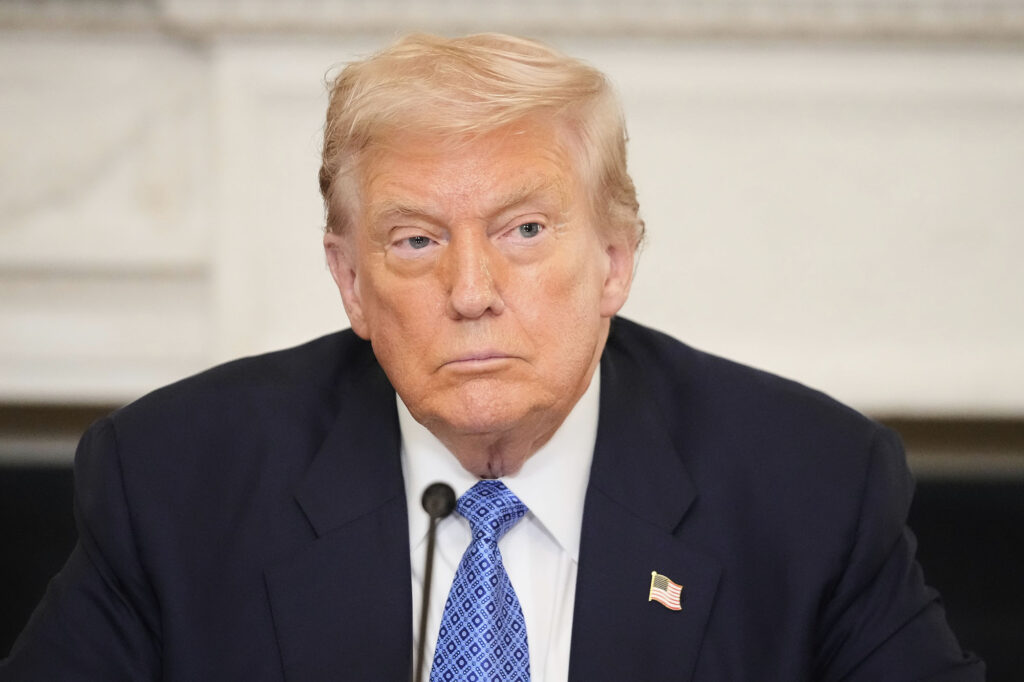🔴 Website 👉 https://u-s-news.com/
Telegram 👉 https://t.me/usnewscom_channel
Of all the problems bedeviling the American healthcare system, the high cost of pharmaceuticals is one of those most commonly cited by patients.
Polling finds that most Americans think drugs are too expensive, and they’re often right — even if pricey medications beat alternatives like surgery, hospitalization or living with pain.
President Donald Trump has promised to implement healthcare reforms that both increase innovation and improve affordability.
Some see these as contradictory pursuits — but when it comes to pharmaceuticals, both of the president’s goals can be achieved at the same time.
This week the two of us, along with a team of top health and economic experts, launched Most Favored Patients, a working group aimed at developing reforms that will lower drug prices in ways that won’t hinder or delay new drug development.
Before we suggest policies that could work, let’s be clear about what doesn’t: government-mandated price controls.
Top-down edicts that remove the profit motive from drug research and development will do more harm than good, impeding the race to identify cures for cancer, Alzheimer’s, Parkinson’s, epilepsy and other cruel diseases.
It’s a short-sighted solution, too: It ignores the reality that 93% of US prescriptions are for very cheap generics — indeed, cheaper here than abroad — that emerge after innovators earn the necessary returns on their investments.
Instead, let’s try some innovations that make both medical and economic sense.
First, do the easy stuff first and allow patients to buy medicines from pharmaceutical companies directly.
Our recent poll of 1,000 battleground-state voters found overwhelming 86% support for this concept, which would lower drug prices by avoiding expensive retail markups imposed by insurance companies and others.
Most voters also favor Trump’s intention to rein in costly middlemen like the highly concentrated pharmacy benefit manager industry, which negotiates drug prices for insurance companies.
We also must require foreign countries to pay their fair share for medical innovations developed in the United States — that is, nearly all of them.
Trump can use his NATO negotiations as a model here: Just as he has required Europe to pony up more for the benefits of NATO security through minimum levels of military spending, he could convince trading partners to spend more of their GDP on new drugs.
Right now, more than 70% of global pharmaceutical earnings come from the United States, even though we generate less than a quarter of global GDP.
We annually spend $13,000 on healthcare per capita, while the rest of the developed world spends far less than $10,000 — partly because we allow more free-market healthcare pricing than other nations do.
Trump is already implementing some of these reforms in his America First trade deals, securing some $300 billion worth of foreign commitments for new domestic pharmaceutical R&D, manufacturing and workforce investments.
These commitments share the burden of finding cures that will benefit all of humanity — while fueling the American research engine that justifies the investments.
Next, the Food and Drug Administration must thoroughly overhaul its antique, snail’s-pace drug approval process: Many potential wonder drugs developed by small biomedical firms are shelved when that process’ exorbitant costs and delays drain their capital.
The FDA should fast-track experimental drugs for crippling and lethal diseases, and should expedite “Right To Try” rules to get promising drugs to the people who need them.
In addition, we believe the FDA should loosen its regulations and use economic criteria, not just clinical ones, to determine whether a drug may be fast-tracked for approval: Put simply, cheaper drugs should be allowed to come to market faster.
Finally, we’re confident that price transparency in drugs and all other medical services would help drive prices down and encourage more comparison-shopping by patients.
We don’t buy food or gas or homes without knowing their price — but that’s too often the case with drugs, hospitals and medical procedures.
Republicans have been missing out on the political benefits of seizing on common-sense reforms like these.
Voters consistently view the GOP as being less caring and less reliable on solving our nation’s healthcare concerns.
That’s made them cower.
They keep their mouths shut and flee from any discussion of voters’ valid complaints — and often lose elections as a result.
As the midterms approach, Republicans who promote innovation with our Most Favored Patient proposals will help bring down costs, ensure American biomedical innovative supremacy, and save lives.
Everyone is on board with that.
Stephen Moore is a co-founder of Unleash Prosperity, where Tomas Philipson is a senior research fellow.
